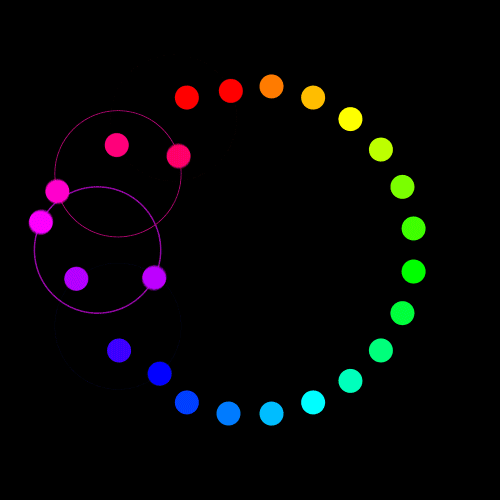
Computational Learning Theory
副标题:无
作 者:David Helmbold (Editor), Bob Williamson (Editor) 著
分类号:
ISBN:9783540423430
微信扫一扫,移动浏览光盘
简介
The LNAI series reports state-of-the-art results in artificial intelligence re-search,development,and education,at a high level and in both printed and electronic form. Enjoying tight cooperation with the R&D community,with numerous individuals,as well as with prestigious organizations and societies,LNAI has grown into the most comprehensive artificial intelligence research forum available. The scope of LNAI spans the whole range of artificial intelligence and intelli-gent information processing including interdisciplinary topics in a variety of application fields. The type of material published traditionally includes proceedings(published in time for the respective conference) post-proceedings(consisting of thoroughly revised final full papers) research monographs(which may be based on PhD work)
目录
How Many Queries Are Needed to Learn One Bit of Information?
Radial Basis Function Neural Networks Have Superlinear VC Dimension
Tracking a Small Set of Experts by Mixing Past Posteriors
Potential.Based Algorithms in On-Line Prediction and Game Theory
A Sequential Approximation Bound for Some Sample-Dependent Convex Optimization Problems with Applications in Learning
Efficiently Approximating Weighted Sums with Exponentially Many Terms
Ultraconservative Online Algorithms for Multiclass Problems
Estimating a Boolean Perceptron from Its Average Satisfying Assignment:A Bound on the Precision Required
Adaptive Strategies and Regret Minimization in Arbitrarily Varying Markov Environments
Robust Learning——Rich and Poor
On the Synthesis of Strategies Identifying Recursive Functions
Intrinsic Complexity of Learning Geometrical Concepts from Positive Data
Toward a Computational Theory of Data Acquisition and Truthing
Discrete Prediction Games with Arbitrary Feedback and Loss
Rademacher and Gaussian Complexities:Risk Bounds and Structural Results
Further Explanation of the Effectiveness of Voting Methods:The Game between Margins and Weights
Geometric Methods in the Analysis of Glivenko-Cantelli Classes
Learning Relatively Small Classes
On Agnostic Learning with {0,*,1}-Valued and Real-Valued Hypotheses
When Can Two Unsupervised Learners Achieve PAC Separation?
Strong Entropy Concentration,Game Theory and Algorithmic Randomness
Pattern Recognition and Density Estimation under the General i.i.d.Assumption
A General Dimension for Exact Learning
Data-Dependent Margin-Based Generalization Bounds for Classification
Limitations of Learning Via Embeddings in Euclidean Half-Spaces
Estimating the Optimal Margins of Embeddinzs in Euclidean Half Spaces
A Generalized Representer Theorem
A Leave-One-0ut Cross Validation Bound for Kernel Methods
with Applications in Learning
Learning Additive Models Online with Fast Evaluating Kernels
Geometric Bounds for Generalization in Boosting
Smooth Boosting and Learning with Malicious Noise
On Boosting with Optimal Poly-Bounded Distributions
Agnostic Boosting
A Theoretical Analysis of Query Selection for Collaborative Filtering
On Using Extended Statistical Queries to Avoid Membership Queries
Learning Monotone DNF from a Teacher That Almst Does Not Answer Membership Queries
On Learning Monotone DNF under Product Distributions
Learning Regular Sets with an Incomplete Membership Oracle
Learing Rates for Q-Learning
Optimizing Average Reward Using Discounted Rewards
Bounds on Sample Size for Policy Evaluation in Markow Environments
Author Index
Radial Basis Function Neural Networks Have Superlinear VC Dimension
Tracking a Small Set of Experts by Mixing Past Posteriors
Potential.Based Algorithms in On-Line Prediction and Game Theory
A Sequential Approximation Bound for Some Sample-Dependent Convex Optimization Problems with Applications in Learning
Efficiently Approximating Weighted Sums with Exponentially Many Terms
Ultraconservative Online Algorithms for Multiclass Problems
Estimating a Boolean Perceptron from Its Average Satisfying Assignment:A Bound on the Precision Required
Adaptive Strategies and Regret Minimization in Arbitrarily Varying Markov Environments
Robust Learning——Rich and Poor
On the Synthesis of Strategies Identifying Recursive Functions
Intrinsic Complexity of Learning Geometrical Concepts from Positive Data
Toward a Computational Theory of Data Acquisition and Truthing
Discrete Prediction Games with Arbitrary Feedback and Loss
Rademacher and Gaussian Complexities:Risk Bounds and Structural Results
Further Explanation of the Effectiveness of Voting Methods:The Game between Margins and Weights
Geometric Methods in the Analysis of Glivenko-Cantelli Classes
Learning Relatively Small Classes
On Agnostic Learning with {0,*,1}-Valued and Real-Valued Hypotheses
When Can Two Unsupervised Learners Achieve PAC Separation?
Strong Entropy Concentration,Game Theory and Algorithmic Randomness
Pattern Recognition and Density Estimation under the General i.i.d.Assumption
A General Dimension for Exact Learning
Data-Dependent Margin-Based Generalization Bounds for Classification
Limitations of Learning Via Embeddings in Euclidean Half-Spaces
Estimating the Optimal Margins of Embeddinzs in Euclidean Half Spaces
A Generalized Representer Theorem
A Leave-One-0ut Cross Validation Bound for Kernel Methods
with Applications in Learning
Learning Additive Models Online with Fast Evaluating Kernels
Geometric Bounds for Generalization in Boosting
Smooth Boosting and Learning with Malicious Noise
On Boosting with Optimal Poly-Bounded Distributions
Agnostic Boosting
A Theoretical Analysis of Query Selection for Collaborative Filtering
On Using Extended Statistical Queries to Avoid Membership Queries
Learning Monotone DNF from a Teacher That Almst Does Not Answer Membership Queries
On Learning Monotone DNF under Product Distributions
Learning Regular Sets with an Incomplete Membership Oracle
Learing Rates for Q-Learning
Optimizing Average Reward Using Discounted Rewards
Bounds on Sample Size for Policy Evaluation in Markow Environments
Author Index
光盘服务联系方式: 020-38250260 客服QQ:4006604884
云图客服:
用户发送的提问,这种方式就需要有位在线客服来回答用户的问题,这种 就属于对话式的,问题是这种提问是否需要用户登录才能提问
Video Player
×
Audio Player
×
pdf Player
×


